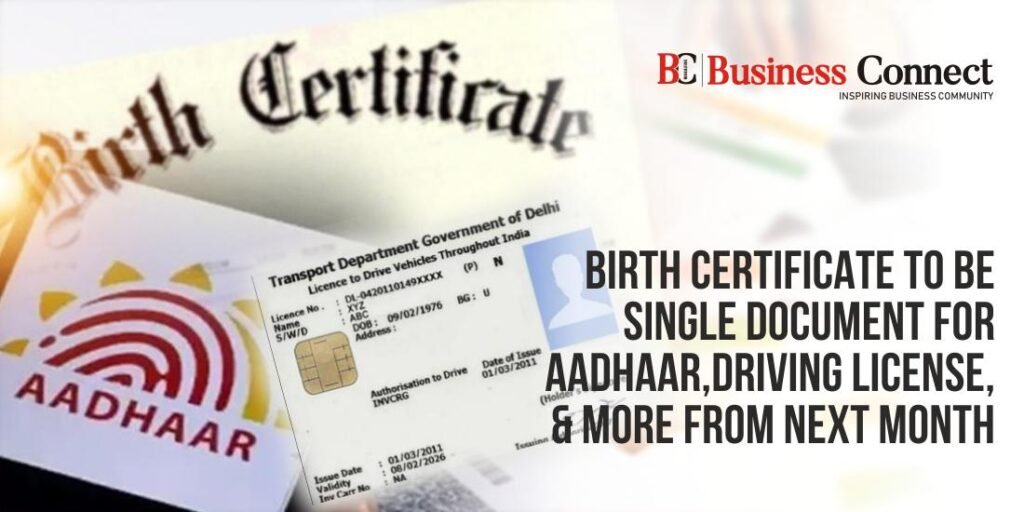Birth Certificate to be Single Document for Aadhaar, Driving License, and More from Next Month
Written by Sanjay Kumar
Starting October 1, a Birth Certificate will serve as a single, multifunctional document for accessing a range of vital services in India. The Indian government has announced this significant change, wherein a Birth Certificate will become the key to availing various essential services, including admission to educational institutions, obtaining a driving license, voter registration, obtaining an Aadhaar number, marriage registration, and even applying for government jobs.
This landmark development comes in the wake of the implementation of the Registration of Births and Deaths (Amendment) Act, 2023, a move championed by the Union Ministry of Home Affairs. The Act aims to establish a comprehensive database of registered births and deaths, promising a more efficient and transparent delivery of public services and social benefits through digital registration.
In a notification issued by the Central Government, it was stated, “In exercise of the powers conferred by sub-section (2) of section 1 of the Registration of Births and Deaths (Amendment) Act, 2023 (20 of 2023), the Central Government hereby appoints the 1st day of October 2023, as the date on which the provisions of the said Act shall come into force.”
This legislation successfully passed both Houses of Parliament during the Monsoon Session, with the Rajya Sabha endorsing it by voice vote on August 7, followed by approval from the Lok Sabha on August 1.
Key Points of the Registration of Births and Deaths (Amendment) Act, 2023:
- National Registry Oversight: The Act bestows authority upon the Registrar General of India to manage a national registry of births and deaths. State-appointed Chief Registrars and Registrars will be responsible for contributing data to this central database, while Chief Registrars will maintain similar databases at the state level.
- Broadened Reporting Requirements: The Act expands the list of individuals required to report births and deaths to the Registrar. Previously, this mandate applied to, for instance, the medical officer in charge of a hospital where a baby was born. Under the new Act, the list extends to include adoptive parents for non-institutional adoptions, biological parents for births through surrogacy, and single parents or unwed mothers.
- Database Sharing: The legislation permits the sharing of the national database with authorized authorities such as population registers and electoral rolls, subject to central government approval. Similarly, state-level databases can be shared with state-approved authorities.
- Appeal Mechanism: The Act establishes an appeal process for individuals dissatisfied with any action or order issued by the Registrar or District Registrar. Such appeals must be filed within 30 days of receiving the action or order, with the District Registrar or Chief Registrar required to provide a decision within 90 days from the date of the appeal.
This move towards consolidating Birth Certificates as a universal document for accessing essential services aims to streamline bureaucracy, enhance transparency, and provide convenience to citizens across India. Starting October 1, Birth Certificates will play a pivotal role in simplifying the process of obtaining key services and benefits.
Must Read:-
- Stock Market Update
- Top 10 shoe brands in India for men & women 2023
- Top 10 Adorable Gifts for Your Special One
- Top 10 Countries with Maximum Indian Population as Citizens
- Top 10 Small Business Statistics You Need to Know For 2023
- Top 10 highest-paid CEO in the World
- Top 10 richest person of India
- Top 10 Highest-Paid CEOs of India
- Top 10 Most Selling Bikes and Scooters of 2022 in India
- The Success Story of Jeff Bezos
- Success Story Of Elon Musk
- Top 10 Business Newspaper In India



